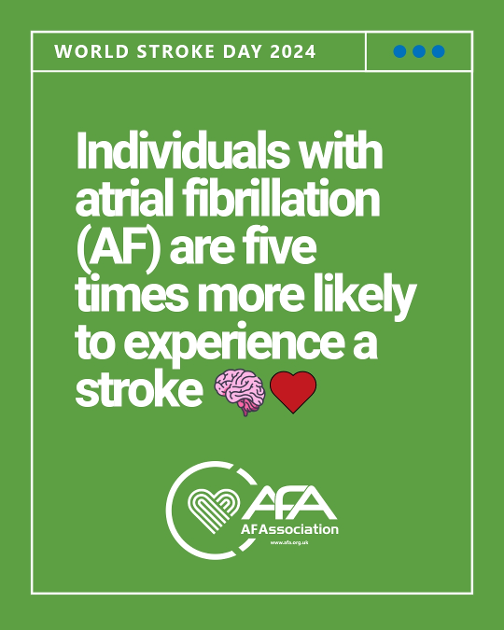Hands up if you knew that individuals with AF are five times more likely to have a stroke ✋
This statistic is alarming, but with the right management, you can significantly reduce your stroke risk. Collaborating with your medical team is essential, and if you are looking for additional support and resources that simplify medical jargon, the AF Association is here to help.
Explore our website to access all our resources for free: heartrhythmalliance.org/afa...
#WorldStrokeDay
